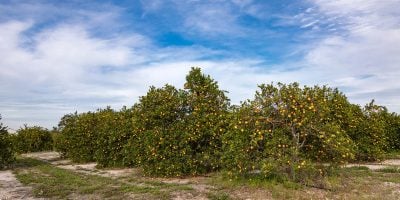Amid COVID-19 Pandemic, Trump EPA Approves Use of Important TB Antibiotic as Pesticide
‘Emergency’ Use of Streptomycin Granted for California Citrus

As the nation struggles to slow the COVID-19 pandemic, the Trump administration has approved an antibiotic considered critical in the ongoing fight against the global tuberculosis pandemic for use as a pesticide on California citrus groves.
This marks the third straight year the so-called “emergency” approval has been granted for use of streptomycin to fight citrus greening disease in citrus trees like oranges, tangerines and grapefruits in California. As has become routine under the Trump Environmental Protection Agency over the past year, the emergency approval was not publicly announced but quietly posted to agency’s Emergency Exemption Database.
“The Trump administration’s shortsighted approval of medically important antibiotics as pesticides has very dangerous long-term consequences,” said Nathan Donley, a scientist at the Center for Biological Diversity. “These are lifesaving medicines, and we risk losing them forever if we keep using them as short-term fixes for reoccurring agricultural diseases.”
The EPA’s own analysis indicates that the widespread use of streptomycin could have negative long-term effects on all mammals that forage in treated fields, including chipmunks and rabbits. The EPA has also not analyzed how this change could affect endangered and threatened species that forage or nest in these citrus groves, or that rely on waterways contaminated by the antibiotic.
The emergency approvals are also controversial because they sidestep the typical pesticide safety review and because the World Health Organization has discouraged overuse of this antibiotic. Streptomycin is considered “critically” important to treating human disease, such as multidrug resistant tuberculosis.
In part because the misuse of antibiotics has fueled resistance in tuberculosis-causing bacteria, the global TB pandemic still kills more than 1 million people around the world every year. In the United States antibiotic resistance results in the deaths of an estimated 35,000 people every year.
The Center is currently litigating the EPA’s failure to release documents relating to concerns expressed by the Centers for Disease Control and Prevention and Food and Drug Administration about the use of antibiotics on agricultural crops.
“It makes no sense that, even as we struggle to find a treatment for COVID-19, the Trump administration is promoting overuse of an important drug in the fight against another pandemic,” said Donley. “The coronavirus crisis should serve as a wake-up call about the high costs of ignoring our leading scientists. We can fool ourselves, but we can’t fool nature.”
Background
Both the European Union and Brazil have banned the use of streptomycin as a pesticide on agricultural plants.
Yet for years the U.S. EPA has routinely allowed use of a range of unapproved pesticides, including antibiotics, under the pretext of an “emergency” when no actual emergency exists, according to an analysis by the Center.
The EPA has used the emergency exemption to approve the use of medically important antibiotics on citrus across 23,000 acres in California and more than 330,000 acres of Florida farmland.
The state of Florida has received an emergency exemption for streptomycin for the previous five years for use on citrus crops. Its current emergency approval is set to expire at the end on this year.
The emergency approvals come as the EPA has proposed a blanket approval that could see as much as 650,000 pounds of streptomycin used across half a million acres of citrus fields throughout the United States. By contrast only about 14,000 pounds of that antibiotic class are used for human medicinal purposes each year. If finalized this blanket approval would no longer require states to apply for emergency exemptions.
*
Note to readers: please click the share buttons above or below. Forward this article to your email lists. Crosspost on your blog site, internet forums. etc.

